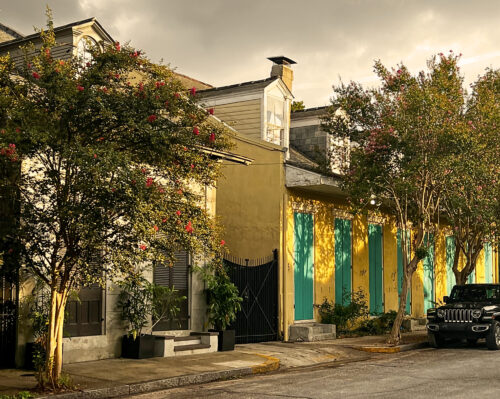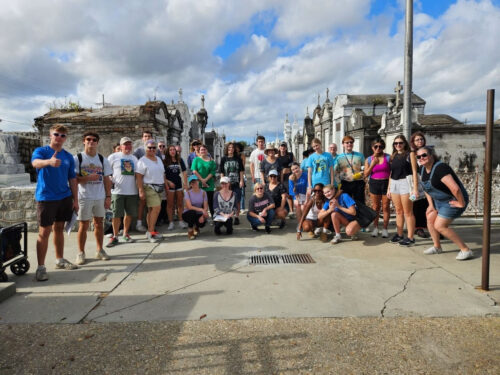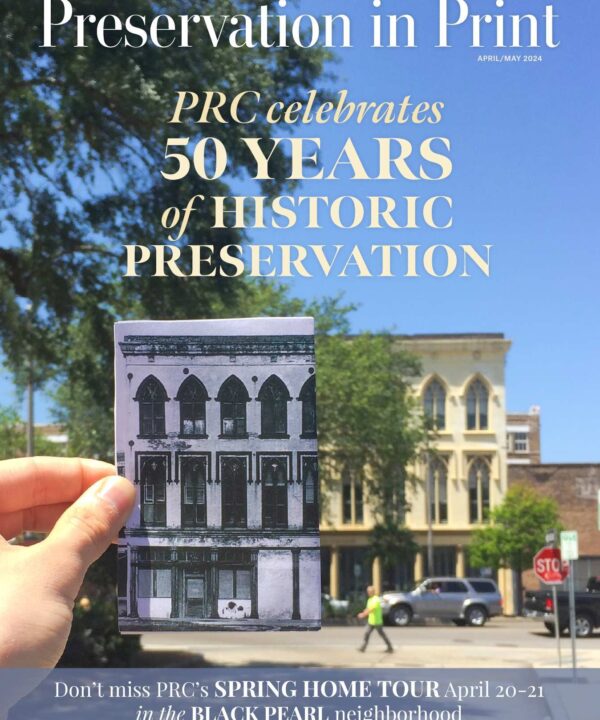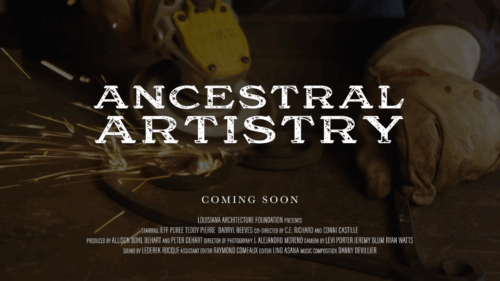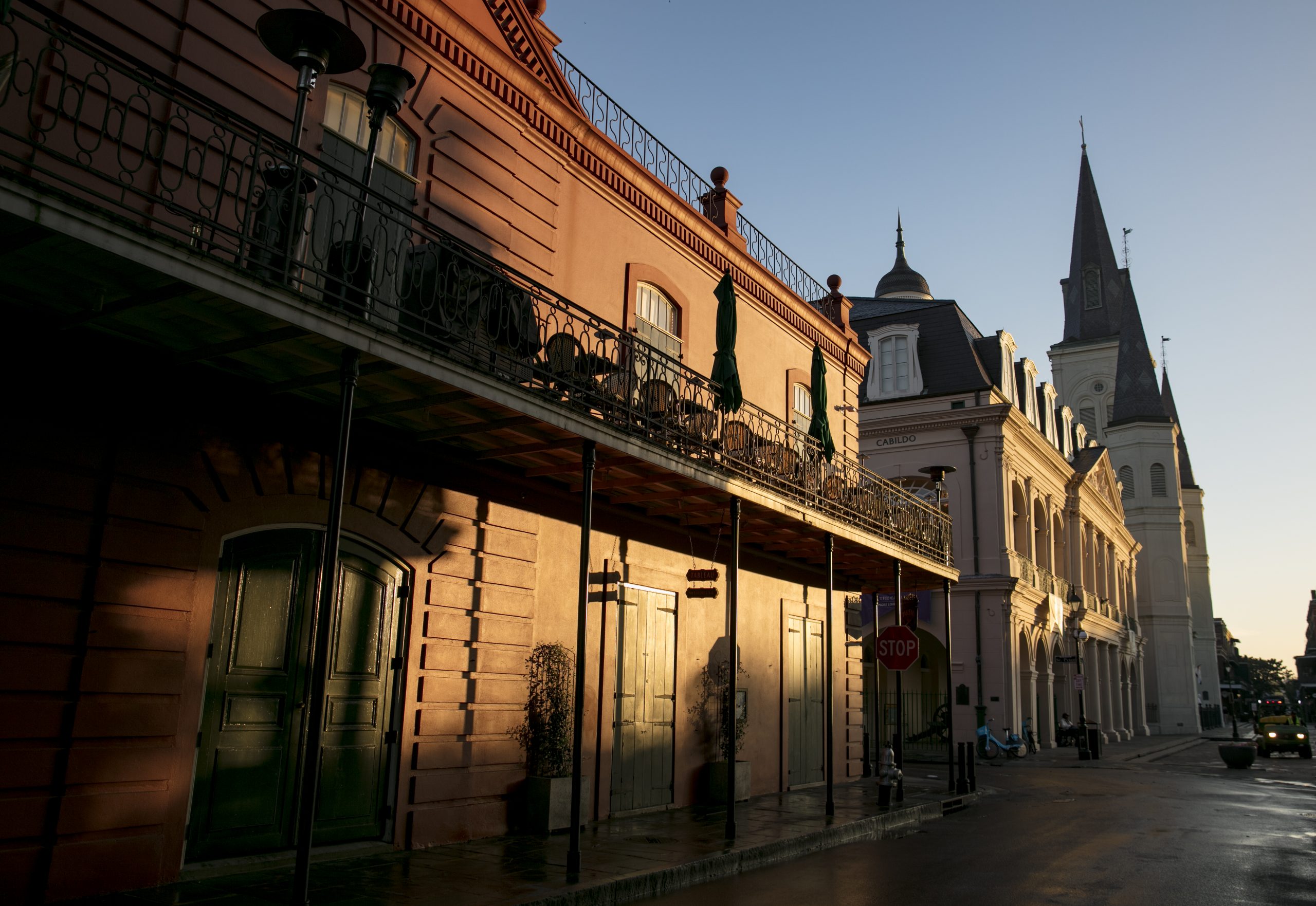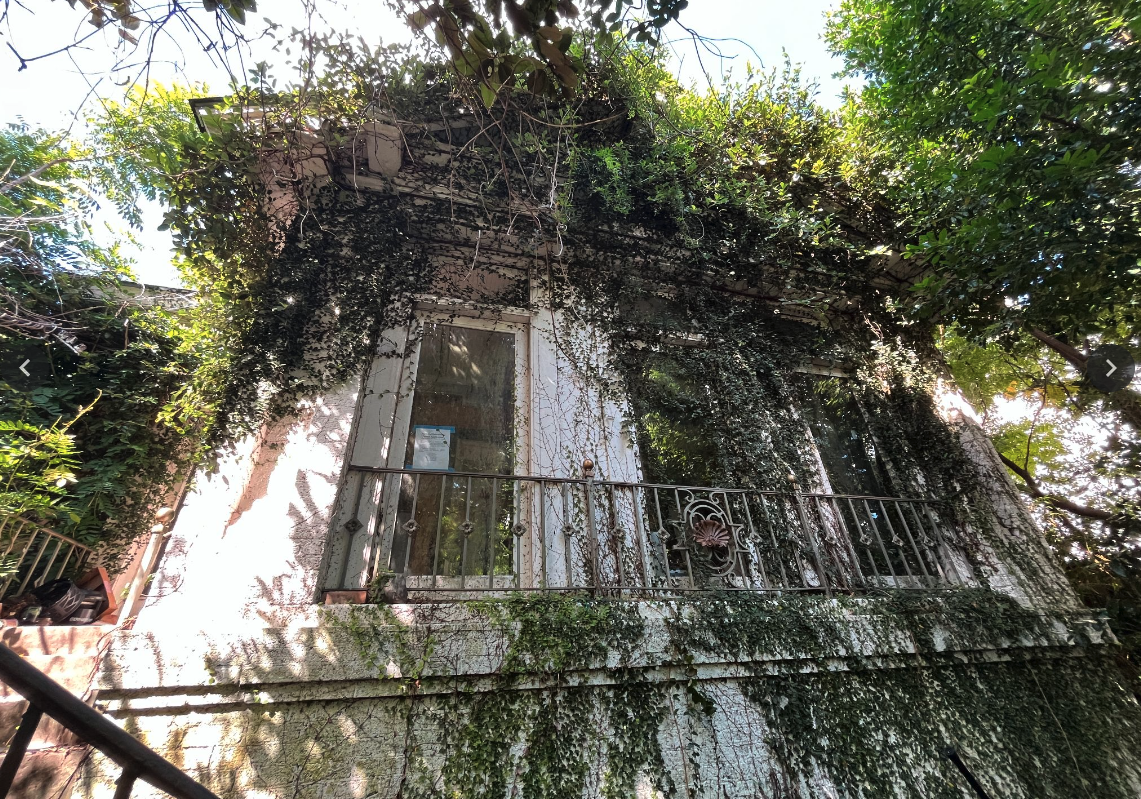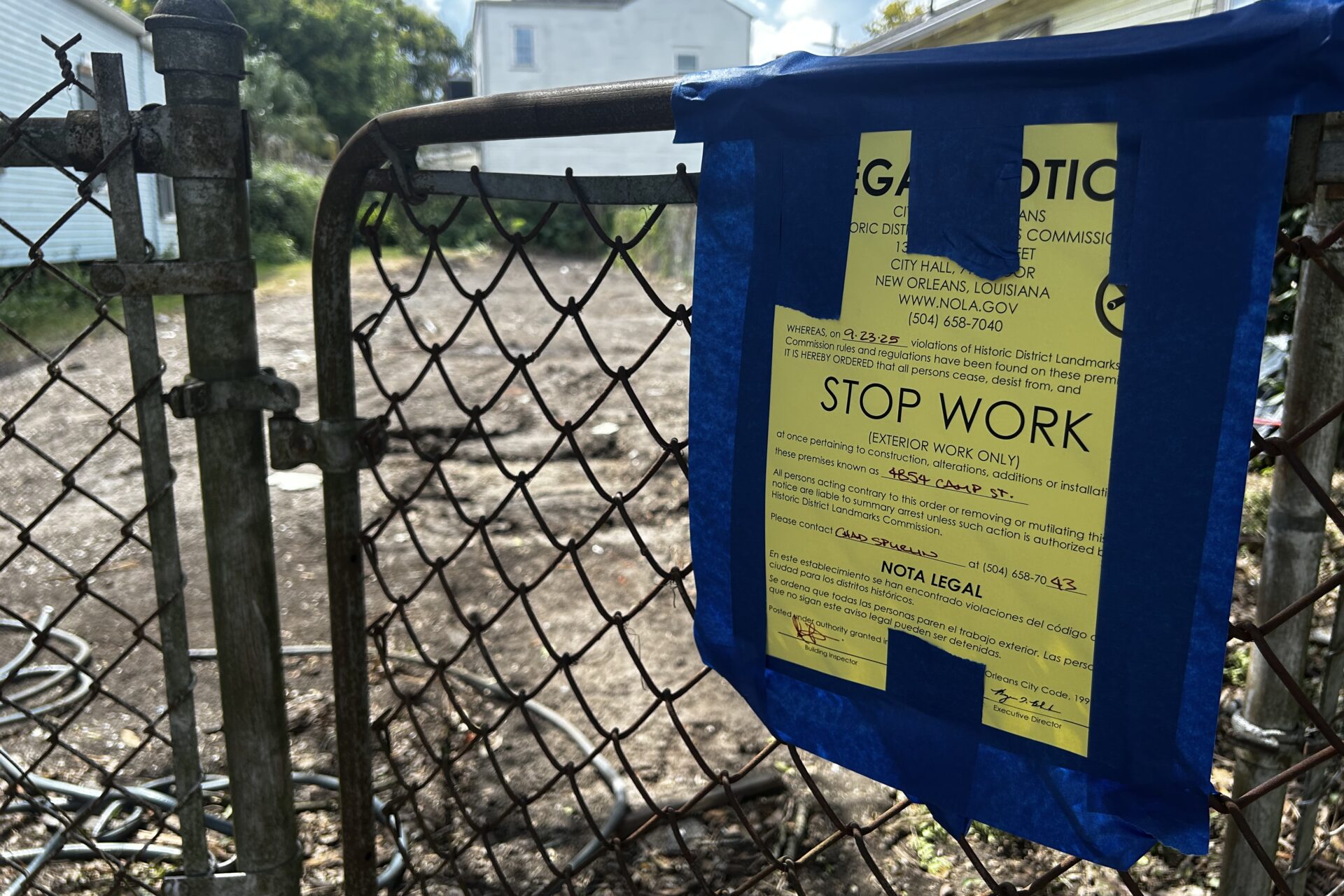Overview
District A • District B • District C • District D • District E • At-Large
Freddie King, III – D
I often say that an education is one of the best gifts you can give someone. Education is power and I believe that cultural and historic sites are of high educational value. On the city council my focus would be to ensure that cultural and historic preservation places an emphasis on educating the public.
Alonzo Knox – D
As a resident of Historic Faubourg Tremė for over 18 years and a former HDLC Commissioner for six years, my major focus regarding culture and historic preservation is to address (1) poor regulation of short-term rentals that drive neighbors and culture bearers out of neighborhoods, (2) unwarranted demolitions that often occur on weekends or happen due to unaddressed neglect, and (3)government action that is ill advised like the destruction of hundreds of oaks, thriving businesses, and a bustling culture to make way for the I-10 expressway; or the more current plan to place City Hall near the sacred grounds of Congo Square in Armstrong Park.
To address these issues, I will:
• Direct additional funding to provide more staffing of the current code enforcement staff.
• Propose the establishment of an office of Nightlife and Culture that would be a mechanism to address code enforcement issues at night and on weekends. This office would handle the same issues as the 9 to 5 code enforcement staff but will be able to address many issues that occur at night and on weekends such as noise complaints and illegal demolitions and repairs. It will also be able to grant streamlined permits for emergency secondlines.
• Work with the State delegation to increase fines for STR violations and fines for general blight and nuisance violations.
• Designate a committee to study and identify economic viable and culturally appropriate uses for the Municipal Auditorium that includes robust and regular neighborhood engagement.
Vincent Milligan – no party
I would like to be pivotal in the reconstruction of the Municipal Center in Armstrong Park helping to turn it into a cultural and Jazz museum , as well as Gift shop and event venue. Creating many jobs and restoring it to better than its former glory.
Stephen Mosgrove – D
My focus will be to preserve and strengthen our neighborhoods to protect their viability and sustainability as just that…..neighborhoods where residents live, work, play, create, bond, look out for, and assist one another. These are the daily experiences that enrich our lives and make life, especially in New Orleans, special and fulfilling.
The role of a councilmember is very important in all areas of City performance and requires care, attention, and independent advocacy. This is particularly important in the council’s role with zoning and land use. A major role and focus will be to protect neighborhoods from being hallowed out and left without permanent residents, from being excessively commercialized, and from being overused and sold out. Decisions will be made with all of this in mind.
Additionally, regarding architecture, culture is partly rooted in environment, setting, place, geography….whatever you wish to call it. Bonded, giving, healthy, accessible, properly scaled neighborhoods are critical to preserving New Orleans’ cultural expressions.
In fact, everything that I have voiced, pushed for, and worked on for three decades has been about culture, elevating our community standards, and executing an improved quality of life so that people will stay invested in New Orleans which is the key to preserving culture in its human expression. To keep locals invested in the city, City government must function for the people at a higher standard, crime must decrease, and a diversified economy that satisfies all skill sets and interests must be built.
In one of my earliest campaign statements, I describe District C as aspirational and exquisite. District C is indeed that and has such potential just as our entire city does.
Frank Perez – D
I view my role on the New Orleans City Council as one that will bring much-needed expertise and experience in cultural and historic preservation, including knowledge about the benefits of historic tax credits. As a member of Vieux Carre Commission Foundation, and French Quarter Citizens I have helped to educate and innovate around historic preservation. On the French Quarter Management District and as a Docent with the State Museum I am well connected to and can influence community members to work together on cultural preservation projects. I have authored five books on the history of our amazing city. I am the president of the LGBTQ+ Archives Project. My record of commitment to your organization’s mission and our city’s legacy is well established.
Barbara Waiters – D
To assist in promotion of culture and preservation thru funding, resources, education, community awareness, and advocacy.
Stephanie Bridges – D
To balance the rights of private property ownership and the benefits of historic preservation and culture versus the health, safety and welfare of the community.
Freddie King, III – D
Illegal dumping and blighted properties are all too common in District C and it makes our world class city look like a third world country. I want to stop illegal dumping by creating designated sites and lining them with large dumpsters for people to dump their belongings. I also want to solve the issue of blighted properties in our community by placing an emphasis on involving and partnering with community groups to tackle the problem together.
Alonzo Knox – D
To move more blighted and vacant houses and lots into the hands of people who would bring them back to life, I would start with the following:
- Work with the State delegation to increase fines on blighted properties and nuisance lots.
- Move budgetary funding to increase staff to adjudicate blighted properties so that more of these properties are available to be put back into commerce.
- Lead the charge to have a comprehensive inventory and detailed plan to develop all vacant lots or buildings owned by the City, the Housing Authority of New Orleans, and the Orleans Parish School Board for mixed use and mixed income developments that provide ample affordable housing (homeownership and rentals).
- Direct a study to determine if a 5-year tax abatement to owners who renovate blighted properties for affordable rentals is feasible.
- Work with state and federal government officials to ensure the continuance and improvement of the Low-Income Housing Tax Credit (LIHTC), State historic commercial tax credit, and the federal rehabilitation tax credit.
Vincent Milligan – no party
I would definitely like to move more blighted properties into the right hands to bring them back to life. New Orleans owns many blighted buildings that could easily be turned into affordable housing. Starting with the old charity hospital.
Stephen Mosgrove – D
There are a number of ways: performance improvements with (proactive) code enforcement inspections and adjudication, empowering community members with the knowledge about how to acquire blight near them and how to restore it, lowering barriers to acquisition for citizens, investing in public acquisition and restoration, and building an economy that retains young populations ready to build lives in New Orleans starting with buying and renovating a blighted New Orleans home.
Frank Perez – D
By expanding access to the Community Land Trust program, we can help more citizens purchase and fix blighted property. The current program constraints do not help middle income people, those likely to be interested in fixing blighted properties, because the income requirements are too strict.
Barbara Waiters – D
We can develop public-private partnerships for affordable housing, as well as leveraging disaster recovery funds. We can also research the advantage of introducing land banks to see if it will be an asset tool to acquire, maintain and facilitate problem properties back into the productive use.
Stephanie Bridges – D
By streamlining the process of auctioning off blighted properties. It may need a constitutional change. Broadly, there should be on mail notice, one notice by publication, and one auction of the property to the highest bidder – Period. If the winning bid is not sufficient to pay outstanding liens, so be it. If the property does not solicit a bid, it should be advertised for sale as is being done in certain communities in Italy for example.
Freddie King, III – D
I am opposed to the proposed relocation of City Hall to the Municipal Auditorium. I will advocate that the Municipal Auditorium be restored to its historic purpose. I will also advocate for the construction of a new City Hall and Civil District Court. Duncan Plaza could be an ideal location, but I would be open to consideration of alternate locations. The site of the current City Hall and Civil District Court would be valuable real estate that could be leveraged to help finance the cost of the new constriction.
Alonzo Knox – D
I would first ensure that City Hall is not moved to Armstrong Park.
With the understanding that the developers of Charity Hospital, 1532 Tulane Partners, appear to still be seeking/negotiating towards an anchor tenant, I would revisit placing City Hall in the Charity building as the main anchor tenant.
I also would study the feasibility of City Hall being placed in Federal City which has failed to thrive and live up to its hope of being an economic catalyst for the Westbank.
Vincent Milligan – no party
I feel the City Hall needs to be renovated and repaired into a new Modern facility instead of being left to become another blighted property and eye sore.
Stephen Mosgrove – D
I very much agree that City government’s main facility must be significantly modernized or a new one built at another location. I believe that the existing physical setting negatively impacts processes, performance, and the customer service experience. Additionally, it simply creates a bad image for the city as a whole.
I do not believe that a new City Hall should move to Armstrong Park. The location would put too much density stress on Treme. The people of Treme and across the city have spoken. There is consensus that a new City Hall should not go at the Municipal Auditorium in Armstrong Park. I support that consensus will of the people.
There are open parcels of land within District C and across the city that could accommodate a new City Hall facility/complex. There are a number of neighborhoods that could benefit from such investment. However, accepting these ideas would require some broad thinking and honest leadership since this is a key decision for the entire community. It would require some flexibility from our citizens and willingness to operate differently.
There should be a full discussion from stakeholders across the entire city about the feasibility to modernize the existing building and/or where to locate a new building. The main questions should be how much will it costs, what is the customer service value for citizens, and what impacts will modernization or a new facility have on its neighbors.
Frank Perez – D
I believe we should explore options that move some aspects of city hall, such as city council offices and the city council hearing room, to another building to free up space. Other priorities for our people must take precedent ahead of what politicians want.
Barbara Waiters – D
I think an open discussion, and an open process that brings the public, officials, and community leaders together to discuss the relocation is the only way to address the issue. I believe studies and research must be done to locate the most feasible spaces throughout the city.
Stephanie Bridges – D
There has been an explosion of work-at-home allowances by employers to employees, and workers desire to continue the same in the wake of the Covid pandemic. These changes, is some way, shape, or form may be permanent. Consequently, it is a new day relative to the adequacy of City Hall to continue as the seat of municipal government. Therefore, I would support an update or new study which takes into account the above-mentioned changes to the workforce occurring nationwide.
Freddie King, III – D
Like I referenced earlier, I truly prioritize the educational elements of historic and cultural landmarks. My biggest criterion would be to evaluate the significance of the landmark based on if I believe New Orleanians can gain significant knowledge from it.
Alonzo Knox – D
As a former HDLC Commissioner that set on the commission for six years, I know that commissioners try to maintain the integrity of historic structures and historic communities. As a person who has saved and renovated historic properties with floors falling through and walls crumbling but with beautiful exterior and interior details, I err on the side of saving historic properties. Therefore, when I review HDLC decisions, I will use similar criteria used by the HDLC Commission:
1. Determine the historic rating of the building (meaning the level of contributing historic attributes);
2. Determine if proposed action would negatively affect the integrity of the community;
3. Determine if property is in imminent danger of collapse;
4. Determine if proposed action presents as a financial burden on families and if so, direct families to resources and perhaps extend time; and
5. Listen to community input
Vincent Milligan – no party
My criteria would be hearing from the Citizens of New Orleans and how they feel about it. My reason for running for City Council is so that the people of New Orleans has someone to listen to them.
Stephen Mosgrove – D
The first step would be an assessment of whether HDLC reasonably followed its standards and processes in its decision-making. In other words, is the decision justified and consistent with objective rules and standards? Other criteria would be whether overturning an HDLC decision would have a significantly net positive impact on the community and how an overturning would impact precedent or the ability to regulate standards and decisions in the future.
Frank Perez – D
The expertise of members of HDLC should be respected. I would be hesitant to overturn decisions of HDLC that are based on sound, credible reasoning and sources.
Barbara Waiters – D
Any decision made must be followed by ensuring that it doesn’t have a negative effect on the neighborhood and integrity of the zoning. It is important and necessary to be informed on the nature of the HDLC decision. we must have equitable standards in place and follow them. We have to thoroughly consider the applications, appeals and issues with the property before making any decisions
Stephanie Bridges – D
I would balance the rights of private property ownership versus the benefits of historic preservation and culture versus the health, safety and welfare of the community.
Freddie King, III – D
I believe that we live in a world class city, but a part of that is protecting the elements that make us a world class city. That is why I support enacting policies that ensure there is no overpopulation of short term rentals and other tourist caused policy issues. We have to prioritize our taxpaying, hard working residents just as much as the tourists because they are the heart and soul of our city.
Alonzo Knox – D
No, I believe we could do more to make tourism equitable. As the owner of Backatown Coffee Parlour, I would be remiss not to acknowledge that tourism supports my business and many businesses in New Orleans. It is this reason that I believe that part of our economic recovery is promoting areas of the City that are under promoted as destinations, such Algiers or the Lakefront. This would lessen over-toursim on the already stressed downtown neighborhoods of Treme, French Quarter, Marigny, and Bywater while making tourism more equitable across the City. To protect neighborhoods that are experiencing over-toursim and manage tourism, I would also focus on enforcement of the current short term rental (STR) ordinance and I would further propose a density limitation text to the ordinance so that entire blocks or streets are not dedicated to accommodating tourists within residential neighborhoods.
Vincent Milligan – no party
STR policies need to be enforced so that neighborhoods are not subjected to overtourism.
Stephen Mosgrove – D
I have argued for decades that our political and business leaders should not feel that every new tourism idea has to be downtown or in/near the French Quarter. I have argued that creative, community enhancing tourism must be established and that there are opportunities in other sections of the city to exhibit those offerings.
Zoning that supports neighborhood residents and neighborhood life, leading discussions about new concepts within our tourism industry, and supporting small business entrepreneurs are ways to expand economic opportunity, create more equitable economic energy throughout District C and the city as a whole, and alleviate tourists saturated neighborhoods from overtourism.
Frank Perez – D
As a member of the Sustainable Tourism Taskforce our work focuses on marketing tourism to a diverse set of visitors to produce diverse patters of spending. We should measure successful tourism by more than hotel occupancy. Instead we should also look at aspects like average daily spend. As a member of the City Council I will bring this innovation to a regulatory perspective. I hope to be member of the Smart and Sustainable Cities Committee, a standing committee of the City Council where I can take active leadership in pursing these policies. As a licensed tour guide, and as a teacher of the tour guiding licensure course at Loyola University New Orleans, I have taken an active role in designing tours that promote tourism in “off the beaten path” parts of our incredible city.
Barbara Waiters – D
We have to ensure sustainable policies and practices that minimize adverse effects of tourism on the use of resources, infrastructure, mobility,congesdtion, as well as socio-cultural impact.. In order to protect our neighborhoods we m must have a collaboration of tourism, realtors,entertainment, officials and media. We can offer alternative locations to visit that are off the beaten track, review the amount of destination rental homes within the area to ensure the short term rental isn’t pushing locals out there home by limiting the amount of days available to the short term rental visitors. We have to change our approach to tourism so we may manage the impact on our neighborhoods
Stephanie Bridges – D
I would balance the rights of private property ownership versus the benefits of historic preservation and culture versus the health, safety and welfare of the community.

